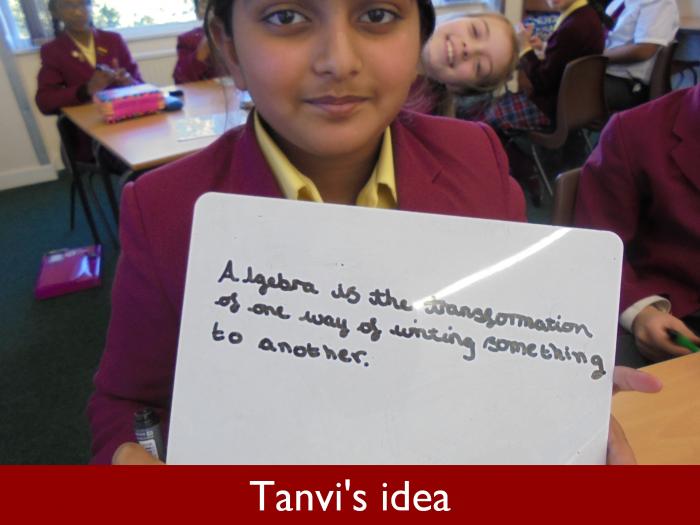
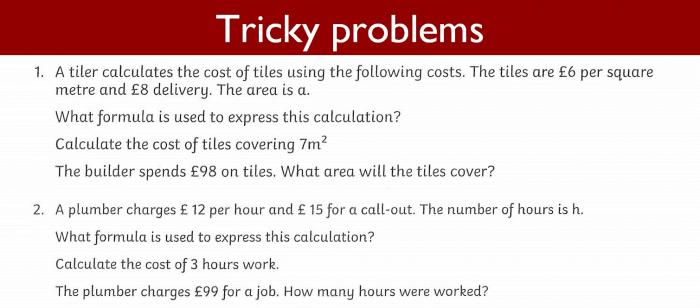
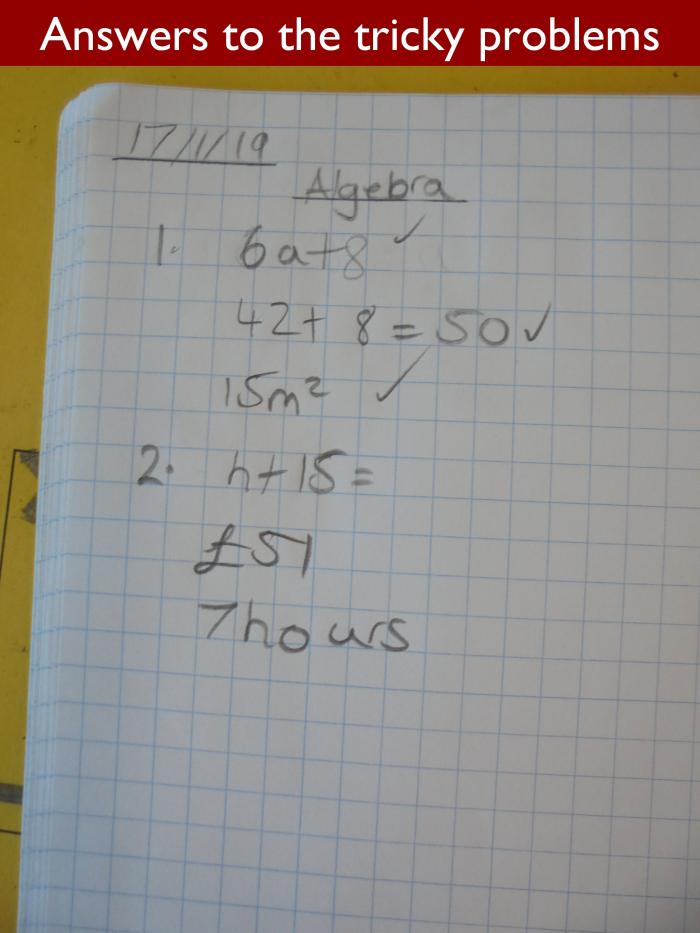
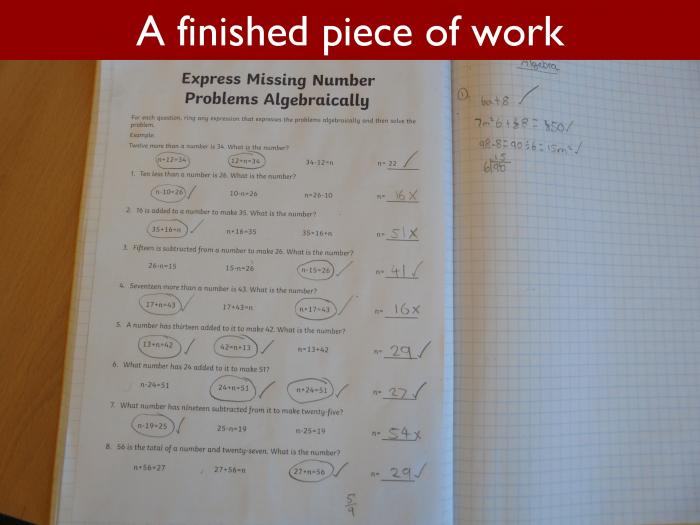
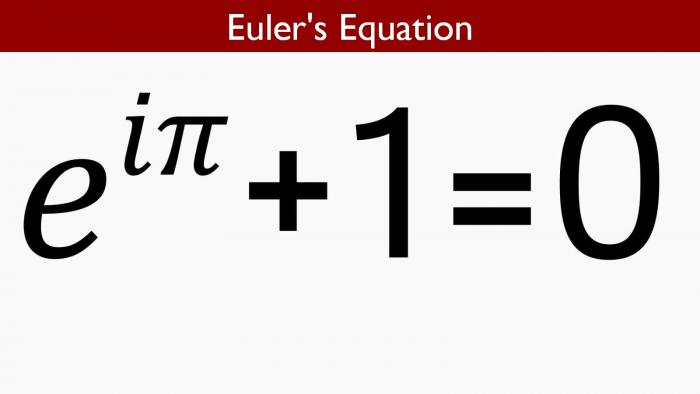
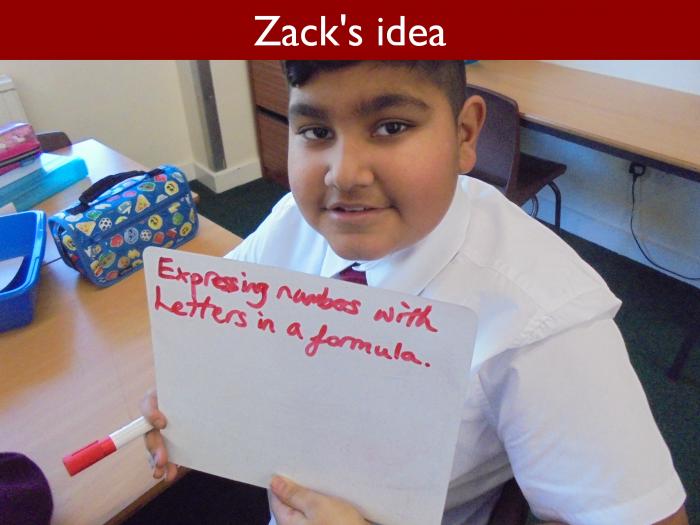
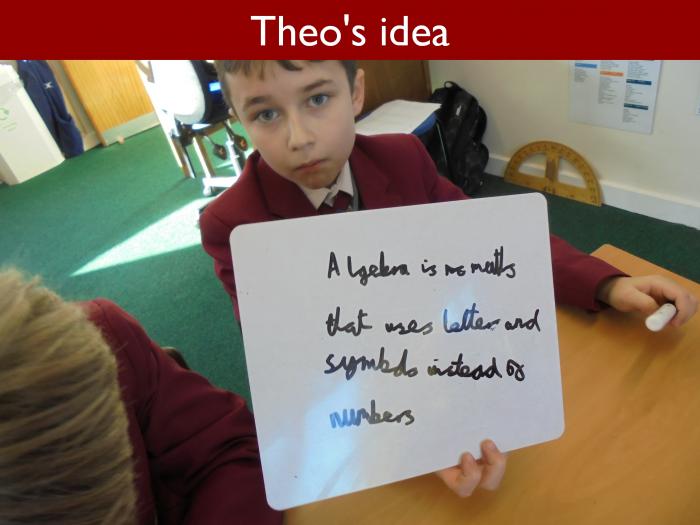

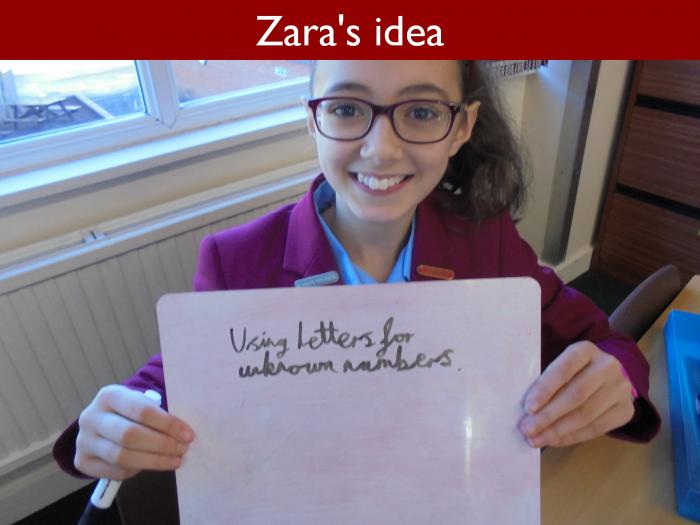
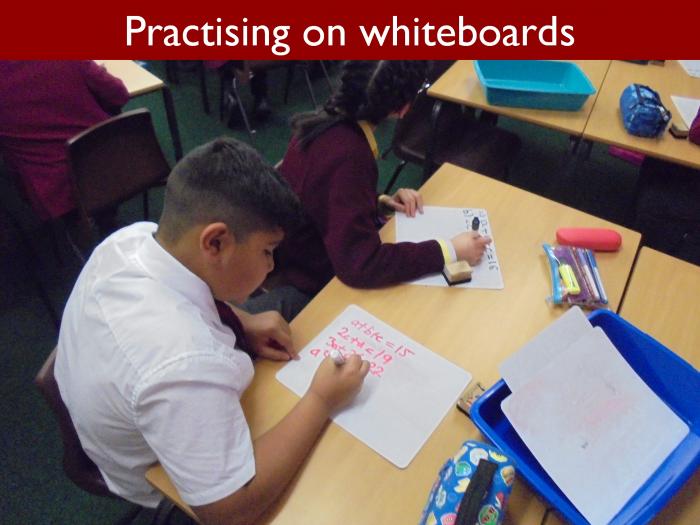

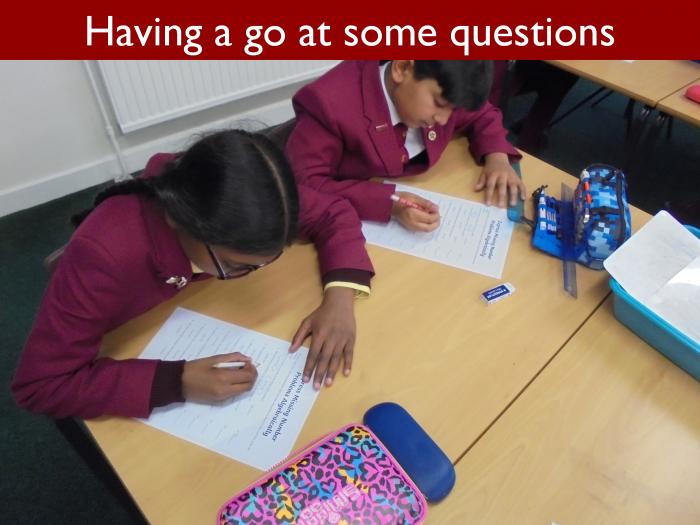
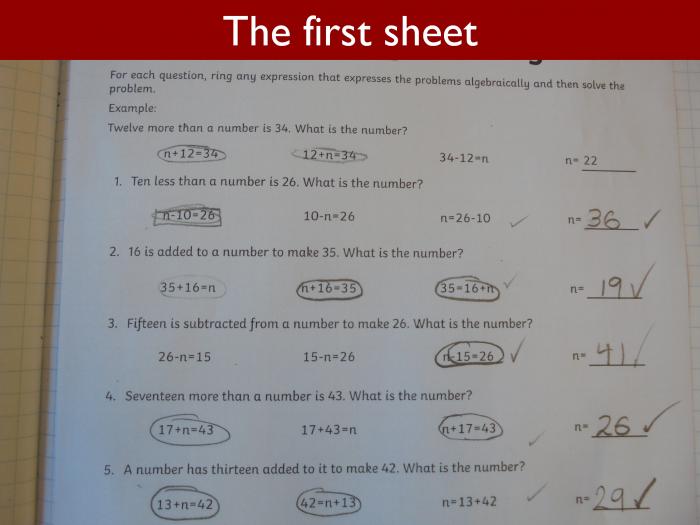
An Appetite for Algebra
My mother often talks about algebra. Her loathing of it at school eclipsed even double Latin on a Friday afternoon and, when I mentioned that algebra would be the subject of this week’s blog, she defied me to come up with a purpose for learning about it. As it happens, no-one ever told me either why I needed to study algebra at school, but a trawl of the internet revealed a surprisingly wide variety of every day applications, ranging from calculating your likely return on personal savings to scaling up a recipe to feed more people. Algebra promotes logical thinking in learners, which has to be a good thing, and gives those who succeed a satisfying sense of achievement. One commentator, quoting an equation by the eminent Swiss mathematician Leonhard Euler, even suggested that algebra can be beautiful. Personally, although you can judge for yourself in the picture I found, I think that might be stretching the point just a little too far!
With my mother’s challenge still in mind, I decided to approach Mr Robbins, who was about to start some algebra work with his Form 6 Maths group. Tellingly, the reaction he got from the children when he shared the lesson objective – a mixture of loud cheers and anguished groans – suggests that algebra’s reputation goes before it. He made it his mission to enthuse the enthusiastic still further and win over the groaners.
Plenty of people brought ideas to the lesson about algebra. As you may have seen on Twitter, Aayushi described algebra as being ‘a calculation where you use letters and numbers together’. Theo took a similar view, whilst Zach saw it as ‘expressing numbers with letters in a formula’. For Tanvi, algebra represented the transformation of one way of writing to another. Meanwhile, Zara had a very succinct definition, namely that algebra is merely when you use letters for unknown numbers.
As far as Mr Robbins’ lesson was concerned, she was right, of course. It is also true to say that, whilst it might not be until Form 6 that the term algebra is used in the classroom, children start doing algebra right down in Lower School. When you solve a missing number problem, even something as basic as 2 + __ = 10, you are doing algebra. In school, we generally refer to such calculations as inverse operations, as they work using the link between addition and subtraction, or multiplication and division. The only difference is that the missing number is represented by a __ rather than a letter so, when it comes to algebra, there is really no reason to be alarmed.
There is a technical difference between algebraic expressions, which can be simplified but not solved, and equations, which are pairs of expressions balanced through an equals sign. It was the latter that Mr Robbins invited his group to tackle, initially on whiteboards, where any errors could very easily be corrected. For instance, can be solved by first subtracting 7 to ascertain the value of and then dividing by two to reach the final answer.
It wasn’t long before the children realised that the thought of algebra is a great deal more terrifying than the reality, and they were ready to have a go at the equations on the sheet. The task was to relate the word problem given to a range of algebraic formulae, and to come up with an answer. That achieved, it was time to move on to the extension activity, where the problems illustrated more clearly how algebra can be useful in real life situations.
By the end of the lesson, only a few people were left without an appetite for algebra. Zach found the lesson fun because it enabled him to see a different way of approaching Maths. Huw was genuinely surprised by how much he had enjoyed it. Alfie, however, was left with a question. Why is the x symbol not used in expressions or equations, meaning that you write 2χ rather than 2 x χ . I would suggest that the answer lies in the fact that mathematicians enjoy simplifying things, expressing ideas, in their purest form, as well as to the more prosaic fact that χ and x could easily be muddled.
As for my mother, I think her opinion is softening a little, but Mr Robbins and Form 6 will have to work harder to convince her that algebra is something that can actually be enjoyed. Maybe I will share with her the beauty of Euler’s equation, if I ever manage to work out what it means.